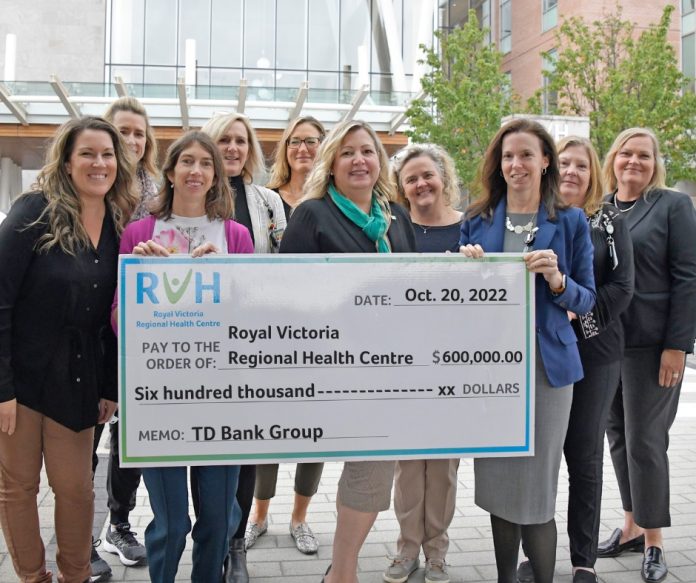
With the number of youth affected by eating disorders rising, a $600,000 donation from TD Bank Group (TD) to the Royal Victoria Regional Heath Centre (RVH) Foundation will help the health centre launch a new lifesaving initiative, centred on early intervention strategies, for young people struggling with this disease.
Through the support of TD, RVH will launch the Advancing Community Eating Disorders (ACED) Care Initiative, powered by TD, with the goal of reducing patient wait times through improving operational efficiencies and enhancing education for medical professionals on early intervention strategies.
“The number of severe paediatric eating disorder patients we see continues to grow, with an increase of up to 50 per cent who end up in our Emergency Department. By the time many young people seek medical help, the disease has progressed so far that the care required has become complex and/or life-threatening,” said Dr. Leah Bartlett, Chief of Paediatrics and Co-Medical Director – Maternal, Newborn, Child, & Youth Program. “Early intervention is critical for youth and their health outcomes. We are extremely grateful to TD for this donation as it will save lives, improve health outcomes for youth and alleviate pressure on our health care system.”
ACED will roll out over the next three years.
“This donation will help so many young people who are struggling with eating disorders to access the care that they need earlier, changing the trajectory of their health for the better,” said Pamela Ross, CEO, RVH Foundation. “We are incredibly grateful to TD for its strategic investments in the important work being done by our team at RVH.”
In today’s changing world, young people are facing heightened challenges across many aspects of their daily lives, and their physical and mental health has never been more pressing,” said Rina DeGrazia, DVP Simcoe & Muskoka TD Canada Trust. “Through the TD Ready Commitment, our corporate citizenship platform, we are proud to support programs like the ACED Care Initiative that will help improve overall adolescent health and well-being and create opportunities for young people across the region to reach their full potential.”







